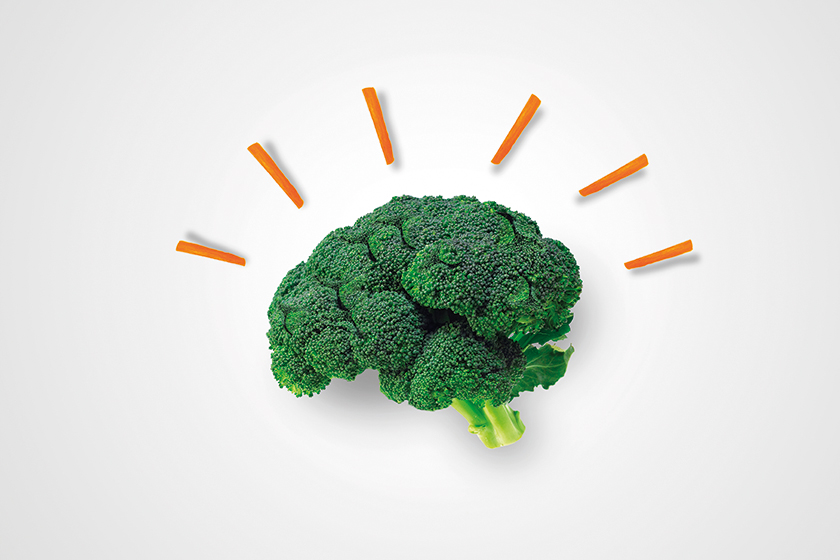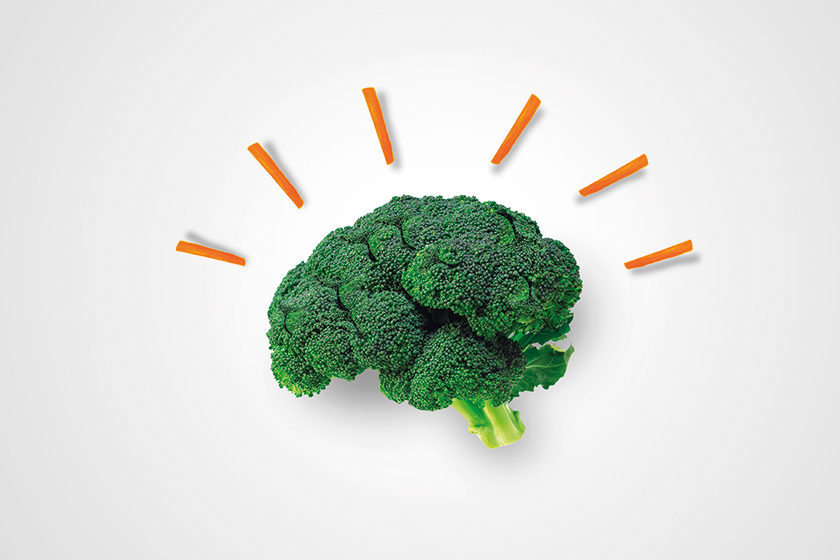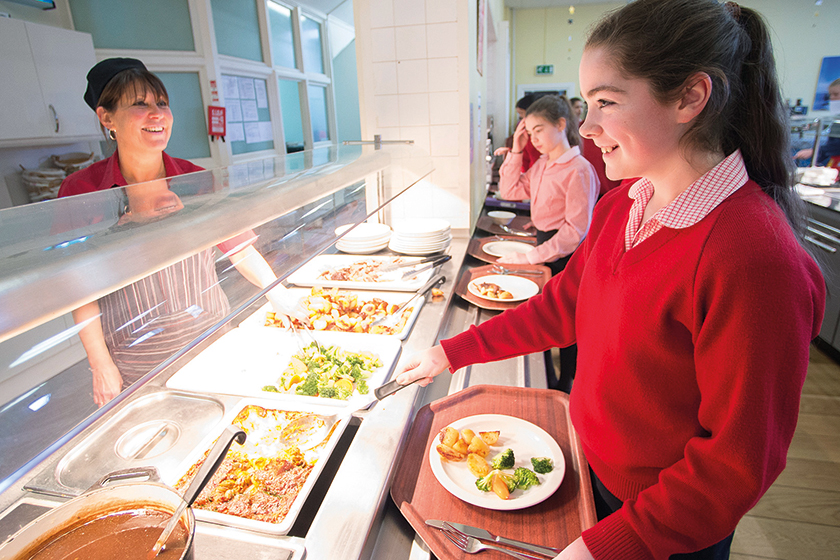The Best Brain Food for Teenagers
By
8 years ago
Every teen should be eating these superfoods for increased concentration, memory and wellbeing

Rachel Kelly, author of Good Mood Food and mother of five children, has some advice on how to boost the mental clarity of our teenagers.

Wouldn’t it be wonderful if there was a way of helping our children pass their exams and improve their focus and memory without recourse to medication or nagging?
I remember having this thought nearly a decade ago as a mother of five. I had become interested in harnessing the power of food to improve my own mental health. ‘Let food be thy medicine’ was a guiding principle for those facing some cancers and heart disease but, hitherto, I knew little about how food could help our minds.
Changing my diet began to help me in my own longstanding battle with anxiety and depression. Might adjusting my children’s diet also help them stay calm as well as pass their exams? After all, your brain needs calories and demands them. It consumes about 300 calories every day and the same again at night. No other animal has such a hungry brain. And the teenage brain is in particular need of nourishment. The more students learn, the more neural pathways and synapses are formed, which in turn require more nutritional support.
The teenage brain
During adolescence, the brain is undergoing huge change. In simple terms, the brain’s dendrites send electrical messages to the neurons, or brain cells. These are the basic building blocks of the brain, and during adolescence they grow and extend, branching throughout the brain.
At the same time, the synapses, which send chemical messages throughout the brain, change too. Those which process information grow stronger, while the weaker synapses not being used begin to die. Finally, the teenage brain sees a growth in myelin. This is the protective layer surrounding axons – the long nerve fibres in the brain that neurons use to fire signals to other neurons.
All of this brain change requires proper nutrition, not to mention sleep and exercise. Without such nourishing, the brain’s ability to learn new tasks and pass those wretched exams decreases. More importantly, in my view, the right food can also help a teenager stay calm and happy.
Brain food
What then, should we be feeding our offspring and their demanding brains? In my quest to learn more about nutrition, I enlisted the help of nutritional therapist Alice Mackintosh.
I learnt that a diet marked by processed vegetable fats, sugar, preservatives and a host of other chemicals may be setting us up for the kind of chronic inflammation which scientists and doctors think may be at the root of low mood, anxiety and depression, as well as low cognitive function.
I eliminated such processed foods, and focused on buying ‘real foods’ for the family instead. This involved buying more vegetables – at least half of your plate should be made up of vegetables. There are several studies which show that adopting a more plant-based diet can lift your mood. One 2010 study found that vegetarian diets are associated with good mental health. A second suggests that the anti-oxidants contained in plants help neutralise free radicals, which some have linked to depression. A third study found that elderly Taiwanese people had a lower incidence of depression when they ate a diet high in vegetables.
This isn’t to say that eating meat and fish is bad – far from it. Our children also need protein and the building blocks of it (known as amino acids) even more as they grow. It’s more a matter of choosing good quality produce and avoiding processed meats. Red meat once or twice a week is useful (especially for teenage girls) and chicken and fish are also easy and quick way to fill hungry mouths.

As a family, we also increased our consumption of eggs, unprocessed carbohydrates, nuts and seeds. We ate traditional natural fats in moderation rather than processed or manufactured fats. We increased our consumption of probiotics and fermented foods to encourage healthy gut flora. Some scientists now think that stress influences our gut bacteria or microbiome, which can have an impact on our mental health. Finally, we ate more calmly and mindfully as well as learnt to cook.
Breakfast
As well as these general guidelines, there are particular foods which can help boost our mental clarity and that of our children. The simple rule is to start the day as you mean to go on with a nourishing breakfast. Ideally it should contain both protein and carbohydrates. Wholegrain carbohydrate choices are best, such as porridge, muesli or wholegrain toast, which provide energy in the form of glucose, the main fuel source for the brain. For the best steady release of energy, ensure they have some protein too, in the form of nuts, seeds, almond or peanut butter or eggs.
Eggs are probably one of the best breakfast choices. Easy, filling and comforting, eggs contain choline, which plays a role in a number of bodily functions, including improving cell structure. Choline may also be important for brain development and cognition and is the subject of a number of studies, though more are needed. While eggs are the best source of choline, it can also be found in liver, pecans and soybeans which, I have found, are slightly harder to eat first thing.
Staying hydrated
In addition, Alice taught me that we should all drink more water if we wish to think straight. Dehydration can lead to headaches and poor concentration. My first step, if one of the children is struggling with a piece or work, is to get them a glass of water. ‘Drinking enough fluids helps everything become clearer and defeats the brain fog,’ Alice says. I’ve found having a jug of water ready on the kitchen table, with a slice of lemon or cucumber, or a sprig of mint, works well in order to make it feel like less of a chore for the family. Herbal teas also count, as do smoothies and juices, but watch out for overloading these with sugar from fruit.
I hadn’t realised how much fluid I could give the children from foods that are naturally rich in water. Especially watery foods including carrots, cucumber, celery, radishes, lettuce, cauliflower, leafy greens, kiwis, watermelons and grapefruits.
Memory
Now I have also boosted the amount of purple foods the family eats. Their pigment indicates the antioxidants they contain. Beetroot in particular helps the body produce nitric oxide, a compound that improves blood flow by relaxing blood vessels and may have other benefits. Berries contain different kinds of antioxidants, including anthocyanin, which is responsible for dark-purple and red colouring. A number of studies have looked at the effect of certain compounds in blueberries and blackberries on brain function and memory. If you had to choose one berry, the kings of good mood food would be blueberries and blackberries. They are a good source of vitamins K and C, as well as fibre, manganese and antioxidants. Scientists are also investigating whether they help protect against heart disease and some cancers. I recommend adding berries of all colours to breakfasts, desserts and smoothies.
Eating more seafood can also help our memory. Crab and other pink and orange seafood such as salmon and prawns contain astaxanthin, an antioxidant that appears to improve cognitive function when taken as a supplement.
Omega 3 fatty acids found in oily fish like salmon and fresh tuna are another key ingredient to boost our mood, as well as our cognitive function. After all, our brain is made up of 60 per cent fat.
While changing my family’s diet has set off a wonderful cascade of benefits, it is not the only lifestyle intervention that has led to a happier family. As anyone who has started a piece of work after going for a run knows, exercise helps us think straight. I’m also a believer in using breathing exercises and mindfulness practices as a way of keeping the family calm. Luckily, my own children are nearing the end of a life defined by exams, but I’m hoping the benefits of feeding their brains will last a lifetime.
The Happy Kitchen: Good Mood Food by Rachel Kelly with Alice Mackintosh is available on Amazon.



